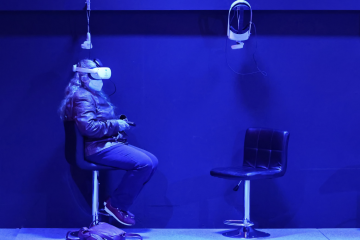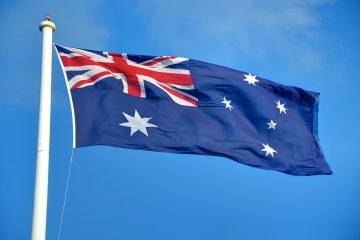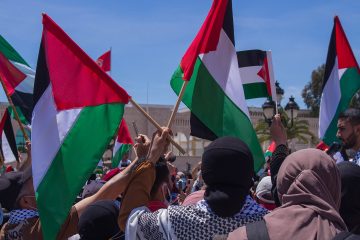The EndSARS movement against police brutality in Nigeria has captured global media attention in recent weeks. While it has been hailed as a moment of tremendous progress, one must also consider whether this progress leaves any citizens behind. Nigeria is regarded as one of the most anti-gay societies on earth. Within the nation, same-sex sexual activity is punishable by imprisonment in some regions and death by stoning in others. In addition to formal and legislative homophobia, Nigerian society holds vehemently anti-LGBTQ+ beliefs, with a 2015 poll reporting that 87% of Nigerians oppose LGBTQ+ rights. Amongst these rising tides of societal advocacy in Nigeria, ending the Special Anti-Robbery Squad (SARS) is just the beginning for queer Nigerians and their struggle for equality and acceptance. Not only did the SARS unit consistently demoralize and abuse the rights of Nigeria’s LGBTQ+ citizens specifically, but even engaging in the protests against the SARS movement puts queer Nigerians in danger. While the SARS unit is antagonized by vast swathes of Nigerians, LGBTQ+ Nigerians have particular reason to come out in support for the EndSARS movement given their brutalization by the unit; however, queer Nigerians navigate a vulnerable position in protesting, fending off abuse not just from those who they are protesting against, but who they are protesting with.
What is the EndSARS Movement?
The younger generation in Nigeria has called for the disbanding of the notorious SARS unit, known for engaging in human rights abuses and police brutality including extortion, arbitrary arrests, and unlawful detentions. Riding global tides of protest against police brutality, starting on October 8th 2020 citizens gathered in towns and cities across Nigeria demanding the abolition of the SARS unit. Officially, SARS was disbanded on October 11, but this certainly is not the end for Nigerians fighting for their human rights. Though SARS was supposedly disbanded, since 2015, the Nigerian government has promised several times to “reform” or “restructure,” and now to “disband” the unit. In these instances, not a single officer was prosecuted for abuse of power and nothing changed on the ground. Moreover, the Inspector-General of Police (IGP) announced that a new unit, called the Special Weapons and Tactics Team (SWAT), would take over the duties of the dissolved SARS, making it even less likely that the dissolution of SARS would actually result in concrete change.
Overall, the fight against police brutality, abuse of power, and systemic corruption is far from over, despite the October 11th disbandment of the SARS unit. Protests are still continuing throughout Nigeria to put an end to the abuse of power once and for all. Certainly, it is dangerous for any Nigerian to participate in the protests, but an additional layer of risk is added when the protestors are LGBTQ+, or if one tries to bring attention to the ways police brutality and extortion disproportionately affect Nigeria’s LGBTQ+ citizens.
SARS and the LGBTQ+ Community
Nigeria is notorious for being one of the world’s most homophobic nations, with countless instances of unlawful detention, abuse, and even murder of LGBTQ+ citizens. When contextualizing the participation of LGBTQ+ Nigerians at the EndSARS Protests, it is important to note the specific ways that LGBTQ+ citizens had their rights abused at the hands of the SARS unit. Those suspected of being queer are often beaten and detained, and sometimes even murdered in jail without anyone ever finding out. There have been reports of Nigerian police extorting, blackmailing, and outing LGBTQ Nigerians to their families. Publicly outing LGBTQ+ citizens in such a toxic climate for the LGBTQ+ community puts these citizens in grave danger of being disowned by their communities, or even physically attacked. Nigerian police, including the SARS unit, have also been known to go through the phones of LGBTQ+ citizens they have detained without a warrant, and use the contents of the phone for blackmail or to track down other LGBTQ+ citizens.
Matthew Blaise, a Nigerian LGBTQ+ activist and subject of a recent viral video documenting outspoken calls for the protection of queer lives at the EndSARS Protests, explained that Nigerian police frequently target the queer community, especially men who present as femme. In one instance, Blaise was approached by four armed SARS officers for “walking like a woman,” and was told they were being detained for the crime for “perceived homosexuality.”
In a recent essay, Blaise wrote of the climate surrounding homosexuality in Nigeria:
“Cis heterosexual people are not harassed, assaulted, and killed by SARS or the Nigerian police based on their sexuality and gender identity or expression. Heterosexuality is the default, but LGBTQ+ people are harassed, assaulted, and killed based on their sexual orientation and gender identity. Nigerians know this but they ignore and gaslight queer people because of the homophobia deeply entrenched in their minds.”
Unfortunately, Matthew Blaise is only one of the many queer Nigerians that have been attacked and had their rights infringed on by the SARS unit, and by the Nigerian police more broadly. Further, queer Nigerians are putting their lives in grave danger by entering the public sphere in order to protest against the very forces that oppress them.
The EndSARS Protests: Not Progress for Everyone
Not even the EndSARS protests provide a space in Nigeria that is void of persecution against LGBTQ+ citizens. Though the protests are one of the most culturally impactful movements in the country’s recent history, there is little to no acknowledgement of the disproportionate systemic brutality queer Nigerians face, and calls for fellow protesters to recognize their struggle and amplify their voices are largely unanswered. This includes calls for acknowledgement of the ways that the police in Nigeria specifically target and harass the LGBTQ+ community, and desires for the creation of greater protections for Nigeria’s at-risk LGBTQ+ citizens. To enter the public sphere in such a toxic climate for the LGBTQ+ community entails a major risk of harassment or violence, even in a space that is supposed to be ‘safe’ and ‘progressive.’
Despite fears of violence or attacks, many queer youths in Nigeria are still taking to the streets in hopes that the EndSARS protests will be a trigger for a more progressive Nigeria to emerge. While investigations surrounding the SARS unit and abuse of power in Nigeria present important rights-related discussions on their own, it is also essential to investigate how these forces and the general climate of Nigeria impact queer citizens. Disbanding SARS might be viewed as a victory for many Nigerians, but it certainly is not the end for LGBTQ+ Nigerians’ fight for their rights. Matthew Blaise and other activists will continue to fight for their rights in this difficult climate, and hope that the waves of progress brought about by the EndSARS movement will also translate into greater acceptance for the LGBTQ+ community and advocacy for queer rights.
Edited by Yesmine Abdelkefi.




